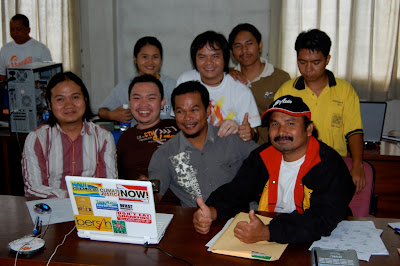2.24.2009
how the u.s. economy was lost...
the american economy has gone away. it is not coming back until free trade myths are buried six feet under. america’s 20th century economic success was based on two things. free trade was not one of them. america’s economic success was based on protectionism, which was ensured by the union victory in the civil war, and on british indebtedness, which destroyed the british pound as world reserve currency. following world war II, the US dollar took the role as reserve currency, a privilege that allows the US to pay its international bills in its own currency... the bald fact is that the combination of ignorance, negligence, and ideology that permitted the crisis to happen is still present and is blocking any remedy. either the people in power in washington and the financial community are total dimwits or they are manipulating an opportunity to redistribute wealth from taxpayers, equity owners and pension funds to the financial sector... // paul craig roberts, 02.24.09, ICH
2.21.2009
2.19.2009
2.18.2009
noam chomsky: a life of dissent...
 this is the latest electronic edition of robert barsky's biography of noam chomksy. // the MIT press
this is the latest electronic edition of robert barsky's biography of noam chomksy. // the MIT press
bill moyers interviews simon johnson...
there comes a time in every economic crisis, or more specifically, in every struggle to recover from a crisis, when someone steps up to the podium to promise the policies that—they say—will deliver you back to growth. the person has political support, a strong track record, and every incentive to enter the history books. but one nagging question remains. can this person, your new economic strategist, really break with the vested elites that got you into this much trouble? // simon johnson, former chief economist of the IMF, baseline scenario
2.17.2009
the age of persuasion...
listen to terry o'reilly explore the countless ways marketers permeate your life, from media, art, and language, to politics, religion, and fashion. // CBC
2.15.2009
the revolución continues...
2.14.2009
2.13.2009
2.10.2009
study: experiences make us happier than possessions...
even in tough economic times, you may find yourself with a bit of cash to spare. you've been working hard, and you want to treat yourself. should you spend it on an experience, such as a baseball game or concert, or a material object? psychological research suggests that, in the long run, experiences make people happier than possessions. that's in part because the initial joy of acquiring a new object, such as a new car, fades over time as people become accustomed to seeing it every day, experts said. experiences, on the other hand, continue to provide happiness through memories long after the event occurred... // elizabeth landau, 02.10.09, CNN
the american ruling class...
the staggering wealth accumulated in the top one percent of american society over last 25 years is directly bound up with the deterioration of the economy, the decline of industry and the impoverishment of the working class. the enormous personal fortunes of the elite have been built up on hedge funds, the leveraging of debt and other forms of financial speculation. this has entailed an enormous transfer of resources out of manufacturing and into finance, and out of the working class and into the pockets of those who have played the critical role not only in destroying living standards, but in setting the stage for the present disaster. // tom eley, 02.08.09, global research
2.09.2009
2.08.2009
another big idea...
international capital mobility, coupled with free trade, allows corporations to escape from national regulation in the public interest, playing one nation off against another. since there is no global government they are, in effect, uncontrolled. the nearest thing we have to a global government (IMF-WB-WTO) has shown no interest in regulating transnational capital for the common good. their goal is to help these corporations grow, because growth is presumed good for all--end of story. if the IMF wanted to limit international capital mobility to keep the world safe for comparative advantage, there are several things they could do. they could promote minimum residence times for foreign investment to limit capital flight and speculation and they could propose a small tax on all foreign exchange transactions (tobin tax). most of all they could revive keynes’ proposal for an international multilateral clearing union that would directly penalize persistent imbalances in current account (both deficit and surplus), and thereby indirectly promote balance in the compensating capital account, reducing international capital movements. // herman daly, adbusters
2.06.2009
darwin, d.n.a. and destiny...
next thursday, feb. 12, marks the 200th birthday of charles darwin, probably the most influential scientist in intellectual history. darwin's theory of evolution has been making trouble for a century and a half, and shows no sign of stopping any time soon. darwin's dangerous idea dethroned mankind as the pinnacle of all creation, and knocked god the creator right out of the sky. apart from the folks who cling to intelligent design, most of us now accept the fact that the human race evolved through eons of natural selection. most of us also figure that human evolution has pretty much stopped. we assume that we are essentially identical to the people who emerged in africa 50,000 years ago, and any differences that may have evolved between different groups of humans are trivial. it's culture that drives human development now. or maybe not. the new explosion of genetic evidence strongly suggests not only that we have continued to evolve, but that some of our evolutionary adaptations have been remarkably significant and swift. and some have played a major role in shaping human history... // margaret wente, 02.06.09, globe and mail
2.05.2009
Subscribe to:
Comments (Atom)
















































